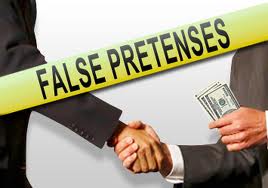Plaintiff brought an action against a City and Sheriff’s Department, contending the Sheriff’s Department caused the release of funds subject to a writ of execution contrary to instructions of plaintiff. The trial court sustained a demurrer without leave to amend. The appellate court affirmed, holding the claim is barred by the litigation privilege in Civil Code […]
Police Officer’s Privilege Against Self-Incrimination Prevented Reporting His Own Sexual Assault Of A Minor.
Minor plaintiff was sexually assaulted by a police officer when she was on an explorer program and doing ride-alongs with him. She brought an action against the City, alleging the City was vicariously liable for the police officer’s negligence based on his breach of the mandatory duty to report the sexual abuse to a child protective […]
Litigation Privilege Does Not Protect Attorneys.
Plaintiffs sued their neighbors for dumping contaminated debris on their property. The court ordered the neighbors’ lawyers to disburse certain funds if their clients did not clean up as ordered. When the neighbors did not remove the debris, their lawyers “disbursed the funds in a manner contrary to plaintiffs’ interest in remediating the debris on their […]
Homeowner Prevails Against Homeowners Association.
Several general provisions in CC&R’s interpreted differently by the Homeowners Association and homeowner, resulting in a $10/day fine until a cabana and fireplace were removed. The trial court sided with the homeowner, vacated the fine and ordered some modifications to the cabana and fireplace. The appellate court affirmed, concluding the trial court properly interpreted the governing documents, and […]
Ignoring An Offer to Compromise Under § 998 May Be Costly.
After two trials and a remitter, a medical malpractice case appeared to be over when judgment was entered for $1,437,276. But the parties soon became embroiled in an issue over costs. Two months after the complaint was served, plaintiff had served on defendant a document entitled “Acceptance of Plaintiffs’ Offer to Compromise Pursuant to [Section] 998 […]
“All Other Persons” In A Release Means All Other Persons.
Rodriguez was injured in a car accident and settled with the other driver, Oto, and the rental car company, Hertz, who rented a car to the other man. The release released: “Takeshi Oto and The Hertz Corporation, its employees, agents, servants, successors, heirs, executors, administrators and all other persons, firms, corporations, associations or partnerships (hereafter […]
Treble Damages And Attorney Fees Upheld Under A Penal Code Provision.
Defendant induced plaintiff to loan him $202,500 based on a false pretense. Plaintiff brought an action seeking attorney fees and treble damages. Penal Code section 496, subdivision (a), makes receiving, buying, or withholding property “that has been obtained in any manner constituting theft” an act punishable by imprisonment. Subdivision (c) reads: “Any person who has been […]
Black Letter California Law On Parol Evidence Rule Rewritten.
The parol evidence rule protects the integrity of written contracts by making their terms the exclusive evidence of the parties’ agreement, except if there is fraud. In Bank of America v. Pendergrass (1935) 4 Cal.2d 258, 263, [48 P.2d 659, 661], the California Supreme Court adopted a limitation on the fraud exception: evidence offered to prove […]
Plaintiff Can’t Sue For Being Dismissed Due To Disability Because She Was Never Dismissed.
Plaintiff, a County employee, who suffered a back injury during her employment and claimed to be disabled, brought an action against the County under Government Code sections 31725 and 31721. The last sentence of section 31725 states in part: “. . . the employer shall reinstate the member to his employment effective as of the day following […]
Insufficient Evidence To Defeat An Anti-SLAPP Motion.
Plaintiff brought an action for sexual assault against her employer and two co-employees. One of the co-employees cross-complained against plaintiff for defamation and intentional infliction of emotional distress. The trial court granted plaintiffs motion to strike under the anti-SLAPP statute [Code of Civil Procedure section 425.16] and dismissed the cross-complaint, and the co-employee appealed. After concluding […]
- « Previous Page
- 1
- …
- 136
- 137
- 138
- 139
- 140
- …
- 183
- Next Page »







